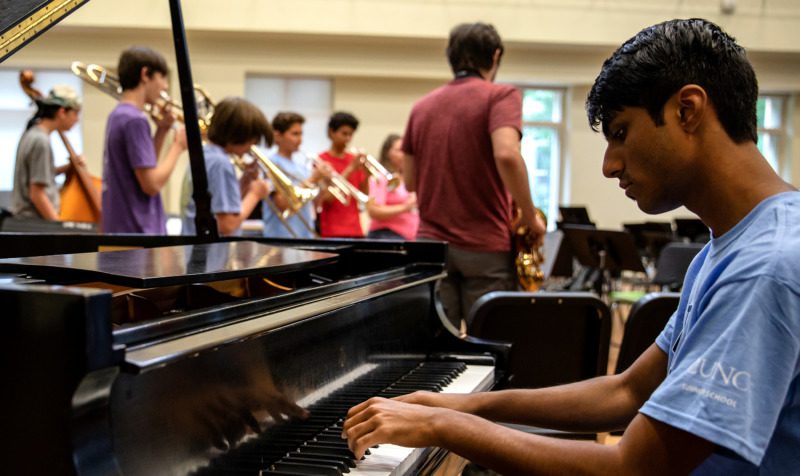Music education has been proven to improve cognitive skills in children and adults alike. When learning to play a musical instrument or sing, one engages multiple areas of the brain, strengthening connections and stimulating new neural pathways. Studies have shown that students who are exposed to music education show improvements in spatial-temporal skills, working memory, and attention. This, in turn, can lead to better performance in subjects such as mathematics, science, and reading comprehension.
Boosts Creativity and Expression
One of the most obvious benefits of music education is its ability to inspire creativity and self-expression. Students who participate in music programs have the opportunity to explore and develop their musical interests, allowing them to express themselves in new and unique ways. This exploration of personal creativity can be applied to other aspects of their lives, encouraging them to approach challenges with innovative solutions and a confident sense of self.
Improves Social Skills
Participation in music education not only fosters individual growth but also encourages teamwork and social skills. When playing in a band or an orchestra, students learn the importance of collaboration, listening to others, and effective communication. Musical performances require the coordinated effort of all members, fostering a sense of responsibility and commitment to the group. These skills can extend to other areas of life, including success in the workplace and personal relationships.
Encourages Discipline and Time Management
Learning to play an instrument or sing requires consistent practice and dedication to hone skills. Students in music education programs learn the importance of discipline and time management, as setting aside regular practice sessions becomes essential for progress. Developing these habits from a young age can be highly beneficial in later life when balancing work, personal commitments, and leisure activities.
Reduces Stress and Anxiety
Engaging in music education can have significant effects on mental health, helping to reduce stress and anxiety. The act of playing an instrument or singing can serve as a form of mindfulness practice, allowing individuals to focus solely on the present moment and temporarily let go of their worries. Further, the emotional connection that can come from playing and listening to music can provide solace during difficult times.
Increases Confidence and Self-Esteem
As students progress in their musical abilities, they often experience a boost in self-esteem and confidence. Overcoming challenges and reaching goals related to their musical pursuits can give individuals a sense of accomplishment and pride in their abilities. This feeling can extend to other areas of their lives, ultimately helping them present a more self-assured demeanor in various situations.
Promotes Cultural Awareness and Empathy
Music education provides an opportunity for students to explore diverse musical genres, styles, and traditions from numerous cultures around the world. This exposure helps to broaden their understanding of different societies and encourages empathy towards others from varying backgrounds. Through music, students can learn to appreciate the beauty and significance of cultural diversity, fostering a more harmonious and tolerant world.
Expands Career Opportunities
The skills and experiences gained through music education can open doors to numerous career opportunities. Musicians and vocalists can pursue professional careers in performance, composing, or recording. Beyond performance, there are countless roles in the music industry, including music education, therapy, production, and administration. Additionally, the soft skills acquired, such as discipline, teamwork, and creativity, are valuable and transferable to a wide range of professions.
Conclusion
Music education offers a wealth of benefits that can positively impact individuals of all ages. From enhancing cognitive skills to fostering social connections and creativity, participation in music programs can lead to well-rounded personal and professional development. Unlocking the potential of music education is not only valuable for the individual but also contributes to the vibrancy and diversity of our society as a whole.



































